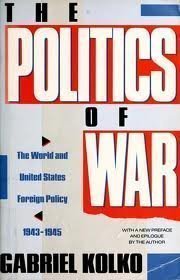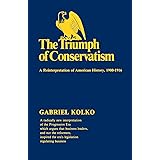




Download the free Kindle app and start reading Kindle books instantly on your smartphone, tablet, or computer - no Kindle device required.
Read instantly on your browser with Kindle for Web.
Using your mobile phone camera - scan the code below and download the Kindle app.

THE POLITICS OF WAR: THE WORLD Paperback – March 17, 1990
- Print length691 pages
- LanguageEnglish
- PublisherPantheon
- Publication dateMarch 17, 1990
- Dimensions5 x 1.5 x 8 inches
- ISBN-100679727574
- ISBN-13978-0679727576
The Amazon Book Review
Book recommendations, author interviews, editors' picks, and more. Read it now
Customers who viewed this item also viewed
Product details
- Publisher : Pantheon; Reprint edition (March 17, 1990)
- Language : English
- Paperback : 691 pages
- ISBN-10 : 0679727574
- ISBN-13 : 978-0679727576
- Item Weight : 1.27 pounds
- Dimensions : 5 x 1.5 x 8 inches
- Best Sellers Rank: #1,307,609 in Books (See Top 100 in Books)
- Customer Reviews:
About the author

Discover more of the author’s books, see similar authors, read author blogs and more
Customer reviews
Customer Reviews, including Product Star Ratings help customers to learn more about the product and decide whether it is the right product for them.
To calculate the overall star rating and percentage breakdown by star, we don’t use a simple average. Instead, our system considers things like how recent a review is and if the reviewer bought the item on Amazon. It also analyzed reviews to verify trustworthiness.
Learn more how customers reviews work on Amazon-
Top reviews
Top reviews from the United States
There was a problem filtering reviews right now. Please try again later.
Throughout the book, Kolko demonstrates that democracy was never a priority for America as it planned for the postwar period. Foremost in the minds of American planners was the Soviet Union and the Left. Communism was seen as the least desirable outcome of postwar Europe as well as postwar Asia and Latin America. Americans preferred to leave local fascist leaders in place rather than allow leftist or pro-union groups to gain control. Democratic elections were postponed and leftist parties were undermined wherever western forces occupied. Moscow was assumed to control any leftist movement anywhere, despite a lack of any evidence.
But this attitude towards the Left belied an even more fundamental position America took in foreign policy – the priority of American business interests. Socialist or nationalist nations that would nationalize natural resources, for instance, would prevent foreign (American) companies from purchasing and exploiting those resources. In Russian occupied nations the Americans did not lobby for free elections so much as it did for the rights of American individuals and corporations to have returned to them their prewar property rights. America lobbied most for an Open Door and Free Market postwar capitalism. To this end it opposed socialist and nationalist movements around the globe. Any movement that proposed domestic control of resources, workers rights, or a redistribution of land was labeled leftist and was opposed. Rather, America befriended or installed big land owners and strong, usually right-wing leaders who could be bribed into accepting American economic interests.
“…Washington had long before decided that its national interests and private economic holdings were synonymous, and this assumption became a critical element in Eastern European policy from the inception of the (Rumanian) liberation.” P. 157
“When (Secretary of State Cordell) Hull in July 1942 decided to make his first major public address since October 1941 to discuss United States war aims, and to give the press advance notice of its special importance, he was again specific only on economic matters. Welles, Henry Wallace, the very uninfluential Vice-President, Stimson, Hopkins, Roosevelt and, of course, Hull again and again, privately and publicly, stressed the economic theme. The future required American leadership in the world economy, “the opposite of economic nationalism,” or a new internationalism which many American allies feared was synonymous with American hegemony over the world economy.” P. 250-1
“Nothing in this (Hull) doctrine suggested a serious preoccupation with the problems of postwar reconstruction outside the context of a renovated world capitalist economy, and Washington’s planning focused on its trade goals rather than emergency aid to a starving Europe that was fighting the war with far greater sacrifices than those of American businessmen, farmers, and exporters anxious over their future profit margins.” P. 262
“In the meantime the United States demanded equal rights with other foreign nationals to explore and develop foreign oil. Given United States power, such a position implied America would demand control over the future development of foreign oil. By this time the State Department’s policy completely identified the national interest with that of American oil firms operating abroad, not merely because numerous former oil industry executives occupied key posts in the department, but primarily due to the traditional synthesis of private and public interest which had been the functional basis of American foreign economic policy for decades.” P. 302
“Since the Americans could not define the critical point at which British power was neither too great nor too weak, but could only clearly define their own objectives, they laid the basis for Britain’s defeat in the Middle East. If the United States was willing to assume merely Britain’s oil holdings, and not the imperialist strategic and political obligations which are the overhead charges of economic imperialism in the modern world, a power vacuum that a weakened Britain would not be able to fill would result. Could the Untied States protect its oil under such circumstances? And would it create the new imperium?” P. 313
“Washington envisioned a “normal” world economy at this level of planning, one that had not existed since 1914 but which the United States might create, one whose basic problem would be surplus and abundance rather than scarcity. It uncritically assumed these objectives were entirely attainable rather than mere aspirations. The English, however, knew the Americans were advocating policies for others but not for themselves, especially when they examined how the Americans translated such principles into an oil or tariffs policy. After hard and bitter experience many skeptical Allies suspected that the American brand of economic internationalism was synonymous with American hegemony over the world economy.” P. 347
“It is not altogether clear why the Untied States thought it might advance its aims in Eastern Europe by calling for the implementation of the vague provisos of the Declaration on Liberated Europe concerning political democracy. In fact the parties the Untied States favored were not democratic, nor had the prewar order fulfilled the criteria the United States now presumably wished established or, implicitly, restored. They could merely imply the theme of restoration, for to admit that democracy was still an alien political experience for Eastern Europe was to reveal the essential American goals, goals which were the core of American policy and had much to do with larger considerations of political-military strategy and economic objectives but precious little with principle. Therefore the Americans were as ready as anyone to sacrifice “democracy” in Eastern Europe as an abstract entity if their more concrete needs and interests were satisfied on a tangible level.” P. 408
“The United States defined its ends in Eastern Europe in such a manner that if the Russians had total control over those tattered nations they could easily have established a working détente with American capitalism, for American core objectives were economic. The United States never became specific on the level of political goals, save for their desire to contain the Left and Russian influence.” P. 424
“The question was not merely how to contain the threat and keep it from coming to fruition in the hands of the Resistance of France, Greece, or Italy, but what this danger said about Soviet intentions for Bolshevizing all of Europe. For the Americans considered the relationship of the Russians to the Left critical, and they never fundamentally differentiated the revolutionary ideology of the USSR from the national interests and foreign policy of Russia. Behind Soviet promises was the problem of covert Russian encouragement of the Left, and the Americans would ultimately hold the Soviets responsible for the behavior of the Left. And just as the United States made no distinction between the action and ideology of the USSR, it made scarcely any for the behavior and ostensible ideology of the left parties of Western Europe and Greece.” P. 428
Quotations – Politics of War by Gabriel Kolko
By the Spring of 1945 the man leverage the Untied States still retained for achieving its war
aims was neither political, ideological, nor military, but, it was hoped, economic. The diplomacy
of the United States so far had failed to thwart the seeming movement toward the left
throughout Europe, the ideological offensive remained with the indigenous forces of change,
and militarily the Russian armies carried the brunt of the land war and conquered the greatest
part of Europe. Yet the remainder of the world was starved and devastated, and only the United
States emerged from the war economically stronger than ever before, and believed itself fully
capable via its economic power of defining the political and ideological outcome of the war. The
war had undermined capitalism everywhere except in the United States, and only the Americans
could aspire to resuscitate it globally. P. 484
“By the Spring of 1945 the main leverage the Untied States still retained for achieving its war aims was neither political, ideological, nor military, but, it was hoped, economic. The diplomacy of the United States so far had failed to thwart the seeming movement toward the left throughout Europe, the ideological offensive remained with the indigenous forces of change, and militarily the Russian armies carried the brunt of the land war and conquered the greatest part of Europe. Yet the remainder of the world was starved and devastated, and only the United States emerged from the war economically stronger than ever before, and believed itself fully capable via its economic power of defining the political and ideological outcome of the war. The war had undermined capitalism everywhere except in the United States, and only the Americans could aspire to resuscitate it globally.” P. 484
“The consequence of useful myopia was wholesale death, the essential element of the war everywhere. If the war appeared to justify the prerogatives of those defining the irrationality in the short run, the outcome of the war was also a decisive world-wide rupture between leaders and the led, one which accelerated the transformation of world politics in ever-growing areas from conflicts between states to conflicts between strata and classes aligned with states and dependent on them to various degrees for survival. In the days after Hiroshima the Japanese and American leaders exhibited all the consistency of men bent of saving the reasoning behind their monumental investment in the blood of millions.” P. 595
“Until the summer of 1945 the American position had been against both French restoration and immediate national independence for the Vietnamese, and in the idea of trusteeship it had predicated an active American involvement in the determination of the future of the country and its control after the war.” P. 610
“For neither the Americans, British, nor Russians were willing to permit democracy to run its course anywhere in Europe at the cost of damaging their vital strategic and economic interests, perhaps also bringing about the triumph of the Left or the restoration of prewar clerical fascism. In fact we now know that the Russians lost control of the revolutionary forces in Yugoslavia and Greece, and that they had no intention of Bolshevizing Eastern Europe in 1945 if – but only if – they could find alternatives.” P. 619
“It was inherent in the clear vision of the type of world order the Americans wished to create, and inevitably the American defeat of Britain for predominance in the Middle East also predicated the task of policing ever-growing regions of the world. America’s foreign policy at the end of World War II necessitated the ability and desire to employ loans, credits, and investments everywhere, to create a world economic order according to its own desires. In this the United States did only what was functional to its own needs and objectives, as the British had done before it in an earlier era”. P. 624
late Gabriel Kolko. (Read also other works of Joyce and Gerald Kolko
such as THE LIMITS OF POWER...)
I keep returning to this work. The formation of the UN in all its
unseemly reality is described, for one example.
There is, of course, much, much more from the years 1943-1945.
i found this to be a enjoyable read. highly recommend it.
Whereas Williams had covered U.S. foreign policy since the economic crises of the 1890s, Kolko concentrates on the three years between 1943 and 1945. Kolko saw that the British and the Yanks were partnering-up not just to win a war, but to carve up the world much as Orwell described it in "1984". American-powered British Empire, according to Kolko, is a counter-revolutionary force to secure through American brawn "The Triumph of Conservatism" (1963) - the old oligarchic mercantilism of the British now partnered with the Yanks.
Kolko saw that World War Two was just the second half of the Great War. He saw that Anglo-American Empire was a global threat. He saw that the Cold War was instigated by the U.S. and the Anglo-American oligarchy. He saw their counter-revolutionary movement as conservative, bent on maintaining the status quo while increasing market share in the global arena. It is a Tory version of conservativism, as opposed to the American brand of liberty, property and freedom.
Kolko brings light to many questions, such as to what extent was U.S. foreign policy a response to the fifth column activities of Britain, their sleeper cells inside America, and other events beyond its control like FDR provoking the Japanese to strike at Pearl Harbor? Was the acquisition of an overseas empire a consequence or aim of war? Were the Americans duped by a game played by governments? Kolko sheds light on all these questions and more in this well-written book. The only caveat is that he gives corporatism the misnomer of capitalism. Instructive and an invaluable resource.






